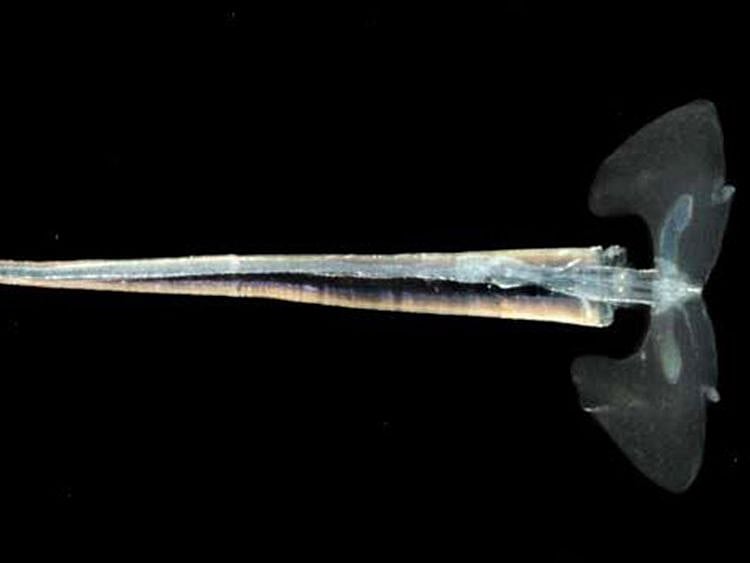Butterfly-like marine creatures spotted on Dubai beaches harmless, non-toxic
Dubai Municipality reassures public, intensifies inspection, clean-up on beaches

Dubai: Dubai Municipality has reassured the public that the butterfly-like marine creatures recently spotted on Dubai beaches are harmless and non-toxic.
Hailing from the Creseis Acicula species, the creatures belong to the family of sea butterflies, a sub-category of sea snails.
Measuring between 7.15 and 13.2mm in length, the creatures’ bodies are protected by a pointed needle-like shell. These organisms are not considered toxic and do not pose a threat to the safety of beachgoers.
However, they can cause discomfort as they can stick to the body. The organisms usually die on the dry sand after the tide sweeps them to the shore.
Widely distributed in the world’s oceans, the Creseis Acicula species is found mainly in warm waters. The creatures tend to appear in coastal waters following changes in marine conditions such as storms and strong winds, sudden changes in marine currents as well as sharp fluctuations in temperature, salinity and food availability.
This is the first time that the creatures have been found by the municipality in such large numbers on the emirate’s beaches. On May 15, large clusters of the remains of these organisms were found on Al Shurouq Beach. On May 25, they were first spotted live on Al Shurouq Beach and to a lesser extent in a part of Jumeirah-3 Beach, while on 27 May, they were spotted in Jumeirah-1 Beach. Following monitoring on May 31 and on the morning of June 1, they were not detected on public beaches except in the marine waters off Al Shurouq Beach outside the swimming area.
The Municipality stated that protecting the marine environment and enhancing the safety and sustainability of marine resources and biodiversity is one of Dubai Municipality’s key strategic priorities.
Dubai Municipality has intensified environmental inspections in all public beaches in the emirate to monitor the extent of their spread on the emirate’s coasts, and collect samples for analysis and study.
The municipality has also intensified cleaning operations to remove any remnants of these organisms on the beaches, so that the public can engage in beach activities safely.
Sign up for the Daily Briefing
Get the latest news and updates straight to your inbox
Network Links
GN StoreDownload our app
© Al Nisr Publishing LLC 2026. All rights reserved.